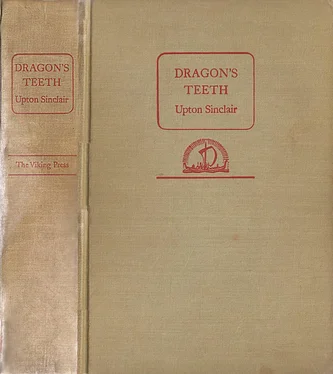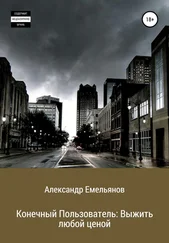Пользователь - o 3b3e7475144cf77c
Здесь есть возможность читать онлайн «Пользователь - o 3b3e7475144cf77c» весь текст электронной книги совершенно бесплатно (целиком полную версию без сокращений). В некоторых случаях можно слушать аудио, скачать через торрент в формате fb2 и присутствует краткое содержание. Жанр: Старинная литература, на русском языке. Описание произведения, (предисловие) а так же отзывы посетителей доступны на портале библиотеки ЛибКат.
- Название:o 3b3e7475144cf77c
- Автор:
- Жанр:
- Год:неизвестен
- ISBN:нет данных
- Рейтинг книги:4 / 5. Голосов: 1
-
Избранное:Добавить в избранное
- Отзывы:
-
Ваша оценка:
- 80
- 1
- 2
- 3
- 4
- 5
o 3b3e7475144cf77c: краткое содержание, описание и аннотация
Предлагаем к чтению аннотацию, описание, краткое содержание или предисловие (зависит от того, что написал сам автор книги «o 3b3e7475144cf77c»). Если вы не нашли необходимую информацию о книге — напишите в комментариях, мы постараемся отыскать её.
o 3b3e7475144cf77c — читать онлайн бесплатно полную книгу (весь текст) целиком
Ниже представлен текст книги, разбитый по страницам. Система сохранения места последней прочитанной страницы, позволяет с удобством читать онлайн бесплатно книгу «o 3b3e7475144cf77c», без необходимости каждый раз заново искать на чём Вы остановились. Поставьте закладку, и сможете в любой момент перейти на страницу, на которой закончили чтение.
Интервал:
Закладка:
chose whatever course seemed to him to open the way to power. He was as slippery as an eel,
and as quick to move, and nobody could say what he was going to do until he had done it. The
one thing you could say for sure was that National Socialism was power without conscience;
you might call it the culmination of capitalism, or a degenerate form of Bolshevism—names
didn't matter, so long as you understood that it was counter-revolution.
The important question was, whether this same development was to be expected in every
country. Was the depression going to wipe out the middle classes and drive them into the arms of
demagogues? Were the workers being driven to revolt, and would their attempts be met by the
overthrow of parliaments? Were the Communists right in their seemingly crazy idea that
Fascism was a necessary stage in the breakdown of capitalism?
Apparently the question was up for answer in the land which Lanny and Irma called theirs.
The ex-service men who had gone overseas to fight for their country had come back to find the
jobs and the money in the hands of others. Now they were unemployed, many of them
starving, and they gathered in Washington demanding relief; some brought their destitute
families and swarmed upon the steps of the Capitol or camped in vacant lots beside the
Potomac. The Great Engineer fell into a panic and could think of nothing to do but turn the
army loose on them, kill four, and burn the tents and pitiful belongings of all. The "bonus men"
were driven out, a helpless rabble, no one caring where they went, so long as they stopped
bothering politicians occupied with getting re-elected.
To Lanny this appeared the same thing as the Cabinet of the Barons, seizing control of
Prussia and ruling Germany with only a few votes in the Reichstag. It was Poincaire occupying
the Ruhr for the benefit of the Comite des Forges; it was Zaharoff sending an army into Turkey
to get oil concessions. It was the same type of men all over the world. They tried to grab one
another's coal and steel and oil and gold; yet, the moment they were threatened by their wage
slaves anywhere, they got together to fight against the common peril. Do it with the army, do it
with gangsters, do it with the workers' own leaders, buying them or seducing them with titles,
honors, and applause!
Lanny could see that clearly; and it is a pleasure to the mind to discover unity in the midst of
variety. But then the thought would come to him: "My father is one of these men, and so are
his father and his brothers. My sister's father-in-law is one, and so was my wife's father, and
all the men of her family." That spoiled the pleasure in Lanny's mind.
X
Two or three weeks passed, and ambition began to stir once more in the soul of Irma Barnes
Budd. There was that splendid palace in Paris, for which she was paying over eighty thousand
francs rent per month, and nearly as much for upkeep, whether she used it or not. Now it was
autumn, one of the delightful seasons in la Ville Lumiere. The beau monde came back from the
mountains and the sea, and there were the autumn Salons, and operas and concerts and all the
things that Lanny loved; there were balls and parties, an automobile show and other displays
of luxury. The young couple set out in their car, and Sophie and her husband in theirs, and
Beauty and her husband in hers. Mr. Dingle didn't mind wherever she took him, for, strange as
it might seem, God was in Paris, and there were people there who knew Him, even in the
midst of the rout of pleasure-seeking.
Margy, Dowager Lady Eversham-Watson, came from London, bringing Nina and Rick for a
short holiday. Rick was a celebrity now, and the hostesses were after him. Also General Graf
Stubendorf was invited, in return for his hospitality, and to Lanny's surprise he accepted.
Others of the fashionable Berliners came, and it was hands across the Rhein again—but Lanny
was no longer naive, and couldn't persuade himself that this was going to keep the peace
among the great European powers. The Conference on Arms Limitation was still arguing at
Geneva, and facing complete breakdown. The statesmen and fashionable folk, even the army
men, would wine and dine one another and be the best of friends; but they would go on
piling up weapons and intriguing, each against all the others—until one day an alerte would
be sounded, and you would see them all scurrying back to their own side of the river, or
mountains, or whatever the boundary line might be.
It didn't take Irma long to become the accomplished hostess. With Emily Chattersworth and
the other ladies coaching her, she played her part with dignity and success; everybody liked
her, and the most fastidious denizens of St. Germain, le gratin, could find no fault in her. She
wasn't presuming to attempt a salon—that would take time, and perhaps might grow as it were
by accident. Meanwhile she gave elegant entertainments with no sign of skimping, at a time
when all but a few were forced to that least pardonable of improprieties.
For three years the business prophets had been telling the world that the slump was only
temporary, that prosperity was just around the corner. But apparently it was a round house.
Apparently some devil had got into the economic structure and was undermining it. In Wall
Street, at the culmination of a furious political campaign, there was a new wave of bank
failures; dividends seemed to have stopped, and now interest on bonds was stopping. Irma's
income for the third quarter of the year had fallen to less than a hundred thousand dollars.
She said to her husband: "We'll have a splurge for the rest of this lease and then go back and
crawl into our stormcellar."
He answered: "All right," and let it go at that. He knew that he couldn't change Irma's idea
that she was helping to preserve the social order by distributing money among domestic
servants, wine merchants, florists, dressmakers, and all the train that came to the side-door of
this palace—as they had come in the days of Marie Antoinette a hundred and fifty years ago.
It hadn't succeeded in saving feudalism, and Lanny doubted if it was going to save capitalism; but
there was no use upsetting anybody ahead of time!
Lanny worried because his life was too easy; he had worried about that for years—but how
could he make it hard? Even the harsh and bitter Jesse Blackless, depute de la republique
francaise, couldn't forget the fact that he owed his election to Irma's contributions, and that
sooner or later he would have to be elected again. Even Jean Longuet, man of letters as well as
Socialist editor, didn't presume to question the judgment of a wealthy young American who
brought him some drawings by a German art student. He said he would be delighted to use
them, and Trudi Schultz was made happy by a modest honorarium from Le Populaire. She had
no idea that the money came out of a contribution which Lanny had made to the war-chest of
that party organ.
XI
Hitler's program of "opposition to the last ditch" had forced the dissolution of the
Reichstag, and a new election campaign was going on. It was hard on Adolf, for he couldn't
get the money which such an effort required, and when the election took place, early in
November, it was found that he had lost nearly two million votes in three months. Johannes
Robin was greatly relieved, and wrote that it was the turning of the tide; he felt justified in his
Читать дальшеИнтервал:
Закладка:
Похожие книги на «o 3b3e7475144cf77c»
Представляем Вашему вниманию похожие книги на «o 3b3e7475144cf77c» списком для выбора. Мы отобрали схожую по названию и смыслу литературу в надежде предоставить читателям больше вариантов отыскать новые, интересные, ещё непрочитанные произведения.
Обсуждение, отзывы о книге «o 3b3e7475144cf77c» и просто собственные мнения читателей. Оставьте ваши комментарии, напишите, что Вы думаете о произведении, его смысле или главных героях. Укажите что конкретно понравилось, а что нет, и почему Вы так считаете.




